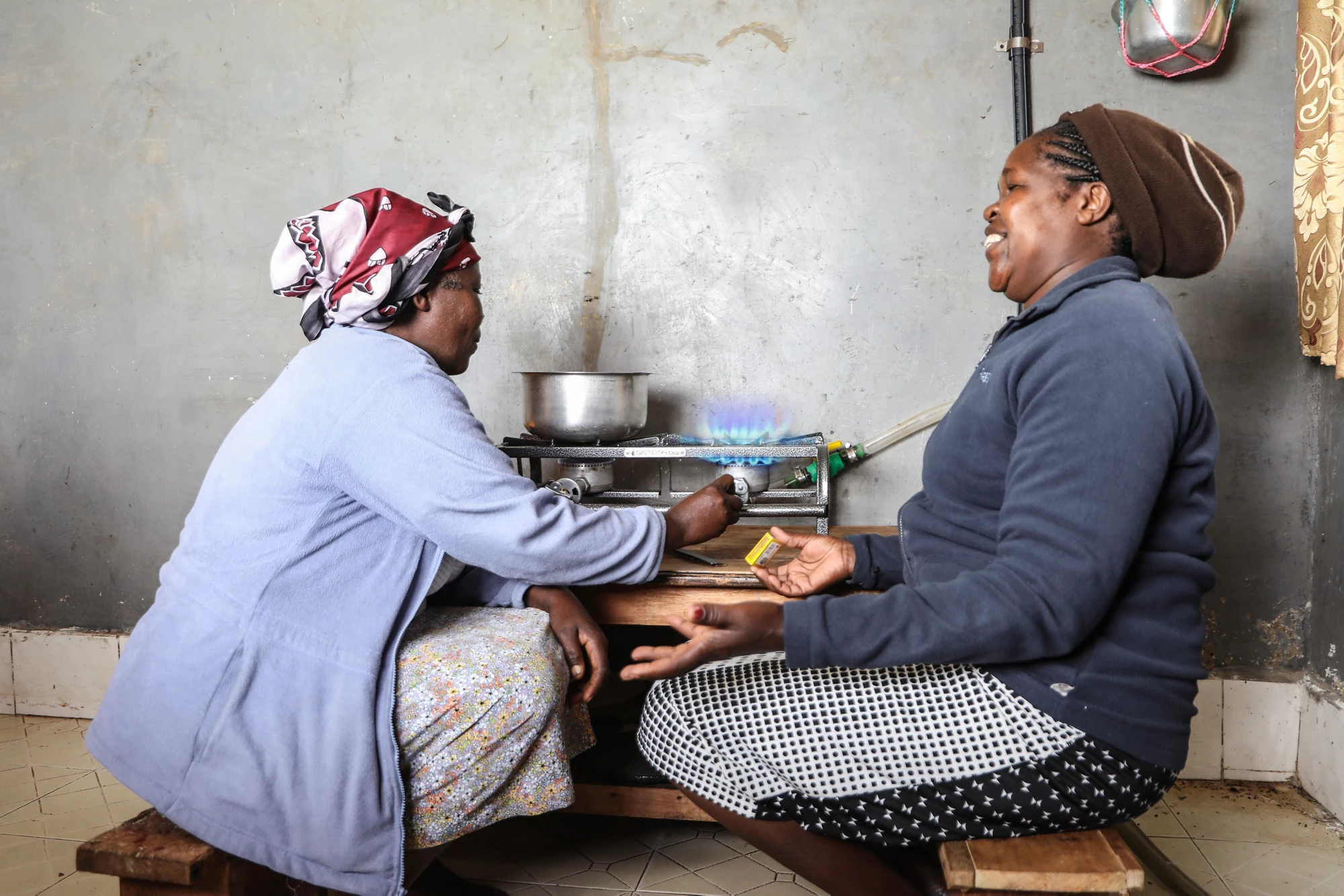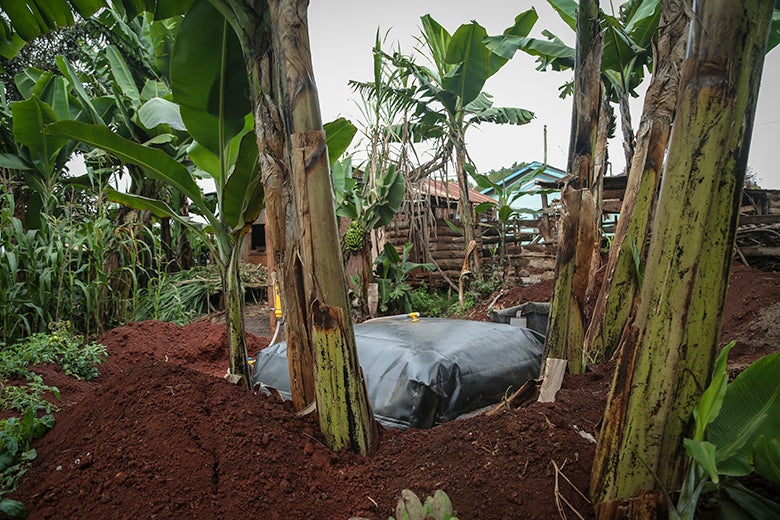 Dos mujeres usan una cocina. Foto: © Sistema.bio
Dos mujeres usan una cocina. Foto: © Sistema.bio
For decades, clean cooking and specifically clean cooking technology, has been more of an energy thing. Stoves are designed by engineers, promoted by Ministries of Energy and sold in the context of improving combustion for a cleaner cooking solution. In the past agriculture has been noticeably absent in these discussions, despite the close linkages with rural farmers and production of the food itself.
We know the magnitude of the cooking problem is large. The share of households that cook primarily with wood, charcoal, coal, crop waste, or dung accounts for over one-half of the developing world’s population and this share is currently increasing or stagnant in most regions. In Africa the numbers are among the highest in the world. A 2014 World Bank report estimates that over 700 million Africans use solid fuels as their primary fuel source, with 98% of households in rural areas depending on it. Dependence on solid fuels; potentially harmful modern fuels such as kerosene; and inefficient and polluting cookstoves is one of the world’s major public health challenges, causing more premature deaths than HIV/ AIDS, malaria, and tuberculosis combined. The use of solid fuels and stoves also imposes significant economic costs on societies that can least afford them and contributes to adverse environmental and climate change effects (ESMAP 2015).
Moreover, many cooking with solid fuels are among the world’s poorest, live in rural areas and engage in farming as their primary activity. Hence, there is a clear and necessary connection to be made between clean cooking and agricultural production.
According to a study, (Heegde & Sonder 2007) conducted by SNV - the Netherlands Development Organization and the International Institute of Tropical Agriculture, cooking with biogas is technically feasible for 18.5 million households (approximately 93 million people) in 24 African countries, based on livestock ownership, water availability, fuelwood scarcity, population density and climate. More recent not-yet-published work by SNV suggests that this number is much, much larger. Farmers producing agricultural waste or animal manure have ready sources of feedstock that can be converted from wastes to clean cooking energy. Small scale biodigester technologies have the capacity to convert agricultural waste into gas, and the potential to provide a clean cooking solution for Africa’s farmers.
A new World Bank report “The Power of Dung: Lessons Learned from on-farm Biodigester Programs in Africa” examines case studies in Burkina Faso, Ethiopia and Kenya of successful biodigester programs and starts to answer the question – how can agriculture programs support the expansion of clean cooking technologies? The report analyzes how biodigester technologies have rolled-out across countries in Africa, many of the challenges that biodigesters face, including the durability of the technology and the user interaction, and ways in which to improve future biodigester programs.
One of the interesting findings of the report is that many of the farmers surveyed for this report valued biodigesters for their ability to produce bioslurry, a liquid fertilizer that can be used on crops. Displacing synthetic fertilizer or providing access to fertilizer where there was previously none can help decrease the production costs and increase the productivity of farmers. Farmers value this – in some cases more than the access to the biogas itself.
It is clear that agriculture has a role to play in supporting farmers access clean cooking technologies. Biodigesters are a low-hanging fruit in some senses – the technology is good, the gas is clean, and the benefits are great (health impacts, access to fertilizer, waste management, increased yields and climate.) Although biodigesters may not be the global solution to clean cooking, they may just be the right solution for at least 18.5 million farming families in Africa.




Join the Conversation